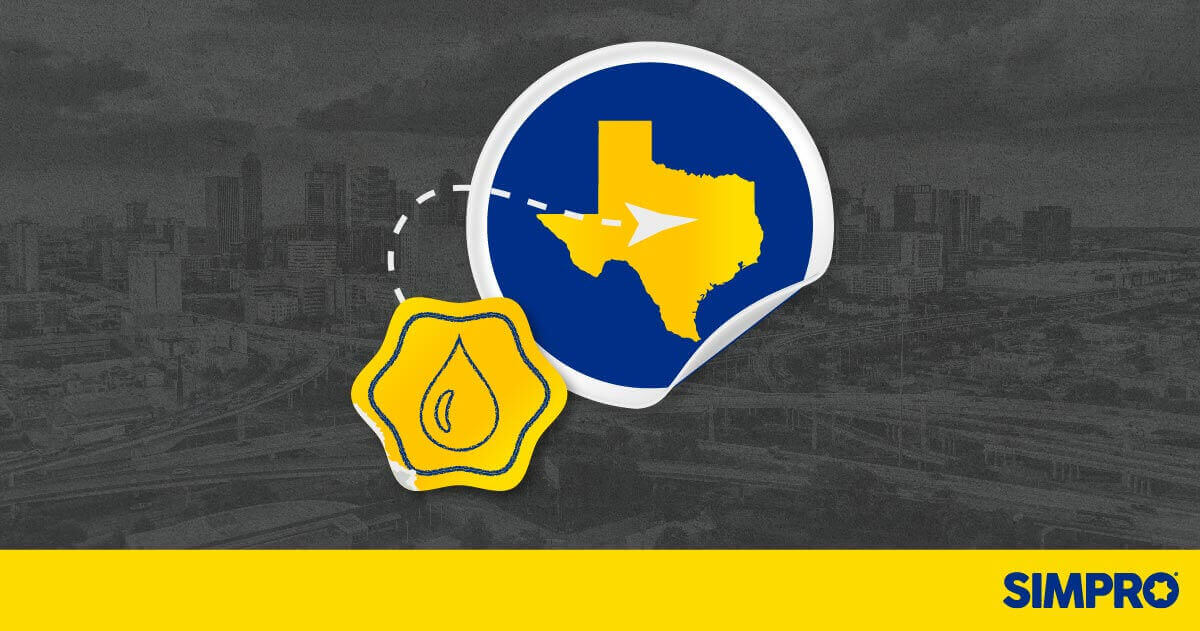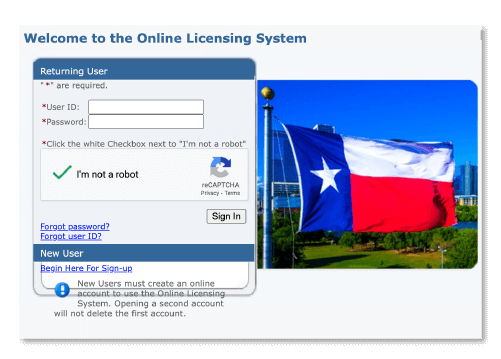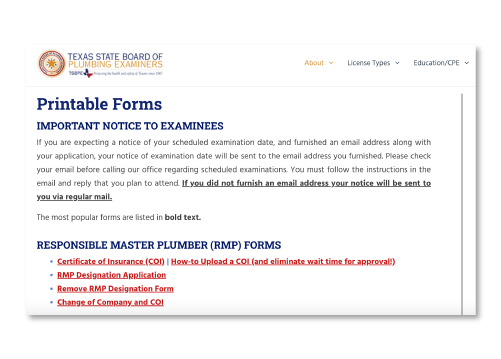The Nitty Gritty
- Discover the different types of plumbers licenses and how to become a plumber in Texas
- Learn how to apply for the different types of plumbers licenses
- Understand what plumbing work can be done without a license in Texas

Are you considering expanding your plumbing business into the great state of Texas? Or are you an employee seeking a plumbing license to further your career? Texas is known for its booming construction industry, making it a prime location for plumbers to thrive.
However, to legally practice plumbing in Texas, you must obtain and renew a state-issued plumbing license. This will not only ensure that you are qualified and knowledgeable in your trade, but it will also protect you from potential legal issues.
To help you navigate this process, we have compiled a simple guide on how to become a plumber in Texas and renew a Texas plumbing license.
Types of Texas Plumbing Licenses
Texas has the second-highest number of plumbers in the United States, with over 35,000 licensed plumbers currently in the state. While areas around the state may have their own requirements, here are the main types of plumbing licenses recognized by the Texas State Board of Plumbing Examiners (TSBPE).
Plumber's apprentice
The Texas TSBPE defines an apprentice plumber as someone who learns and assists in installing plumbing under the supervision of a responsible master plumber. The minimum requirements on how to become a licensed plumber in Texas include:
- Being at least 16 years old
- Proof of United States citizenship
- Submission of a $15 application fee
- Acceptance into an approved program or agency to work under a master plumber
Tradesman plumber-limited license
A limited tradesman plumber may install, renovate, or repair plumbing in one-family and two-family homes under the supervision of a responsible master plumber. It is important to note that this license does not allow you to perform work in commercial or multi-family properties. Texas requires the following to obtain a limited tradesman plumber license:
- Registration as an apprentice
- A minimum of 4,000 hours of experience under a master plumber
- A proof of United States citizenship
- Completion of a 24-hour training course approved by TSBPE or an apprenticeship program approved by the United States Department of Labor Office of Apprenticeship
- Submission of an application and a $35 fee
Journeyman plumber license
A journeyman plumber is defined as someone who has met the qualifications for registration as a plumber's apprentice or licensing as a tradesman plumber-limited license holder. Unlike the limited license, a journeyman plumber can work in residential and commercial properties. To become a journeyman plumber in Texas, you must meet the following requirements:
- Current registration as a plumber's apprentice or holding a tradesman plumber-limited license
- Proof of United States citizenship
- A minimum of 8,000 hours of experience in the plumbing trade
- Completion of a 48-hour training course approved by TSBPE or enrollment/completion of an apprenticeship program approved by the United States Department of Labor Office of Apprenticeship
- Passing the journeyman plumber examination
- An application and fee of $40
NOTE: According to Texas state law, if you hold a journeyman or master plumber license in another state, you do not have to complete the 48-hour training program.
Master plumber license
A master plumber is responsible for planning and supervising plumbing installations, alterations, and repairs. They also have the authority to inspect plumbing work and may employ other plumbers to assist with projects. However, the state of Texas requires that you meet the following qualifications to become a master plumber:
- At least one year of holding a journeyman plumber license
- A high school diploma or equivalent
- Proof of United States citizenship
- Submission of an application and a $175 fee
- Passing the master plumber examination
Inspector license
According to TSBPE, a plumbing inspector "may inspect plumbing work performed within the jurisdiction of any political subdivision with which the inspector is affiliated." The inspector may be employed or contracted by a political subdivision and must not have any financial interest in a plumbing company.
They also have the authority to perform customer service inspections for public drinking water systems as outlined in Texas state law. To become a plumbing inspector in Texas, you must meet the following criteria:
- Proof of United States citizenship
- A high school diploma or equivalent
- At least 500 hours of training and experience in the plumbing industry OR a current license as a master plumber, journeyman plumber, professional engineer, architect, or plumbing inspector from another state with equivalent licensing requirements
- Submission of an application and a $55 fee
- Passing the plumbing inspector examination
How to Get a Plumbing License in Texas
Plumbers in Texas follow a rigid multi-step process to obtain their license. Whether you are just starting your career or looking to advance, here are the general steps you need to take to get your Texas plumbing license.
Registration as an apprentice
Before working towards your plumbing license, you must register as an apprentice with TSBPE. This requires submitting a completed application and the $15 fee to the TSBPE. You may also need to submit a Supplemental Criminal History Information Form (SCHIF) if you have a felony conviction.
HOW TO REGISTER:
- The quickest and easiest way to submit your application and related documents is via the Online Licensing System.

- If you prefer to mail your application via US Mail, printable versions of the necessary forms are available on the TSBPE website. Remember that all forms and documents must be filled out completely and accurately to avoid delays or rejections.

Accumulate required hours of experience
Working as an apprentice under the guidance of a master plumber is essential to gaining the necessary experience required for a plumbing license. You must accumulate a specific number of hours in every license type before qualifying to apply for the next level. These hours can be completed through an approved program or agency, and they are as follows:
- Plumber's Apprentice: No minimum hours required
- Tradesman Plumber-Limited License: 4,000 hours of experience under a master plumber
- Journeyman Plumber License: 8,000 hours of experience in the plumbing trade
- Master Plumber License: At least one year of holding a journeyman plumber license
Choose a license type and submit the application
Once you have completed the necessary hours of experience, you can choose which license type you want to obtain and submit your application. As mentioned earlier, Texas has several types of licenses, so make sure you choose the one that aligns with your career goals. Along with an application fee ranging from $15-$175, depending on the license type, you must also submit proof of United States citizenship and any supporting documents required for your specific license.
Complete required training or courses and take the exam
Depending on the license type, you may need to complete specific training hours or courses approved by TSBPE. These courses cover safety regulations, plumbing codes, and more. Additionally, most license types require passing an examination administered by the TSBPE.
If you hold a journeyman or master plumber license from another state, you can apply for the Texas Tradesman Plumber's license. However, this requires completing a 24-hour Board-approved classroom training and passing the exam.
Submit documentation
Once you have completed all requirements and passed your examination, you must submit any required documentation to TSBPE within one year of passing the exam. This includes proof of insurance or bonding and other supporting documents needed for your license type. Failure to submit all required documents within the specified time frame may result in repeating the licensing process.
Obtain insurance or bonding
Plumbing can be risky, and insurance or bonding is essential in protecting yourself and your business. Depending on the license type, you may need to obtain general liability insurance or professional liability insurance (E&O) before being approved for a license. It's important to note that while general liability insurance protects against physical damages, E&O provides coverage for financial damages.
Additionally, Texas surety bonds are often required for professional licenses, including plumbing. The bond ensures that the licensee complies with all applicable regulations and provides financial protection to the government and consumers. The value of a contractor license bond can range from $5,000 to $25,000, and the upfront cost is typically between 0.75% and 5% of the bond value.
Texas Plumbing License Renewal
After obtaining your plumbing license, you have to renew it annually. The initial expiration date is assigned randomly and can be anywhere from 6-18 months after passing the exam. Below are the general steps for renewing your plumbing license in Texas:
Complete continuing education
All licensed plumbers in Texas must complete six hours of continuing education each year to be eligible for renewal. This includes four hours of industry-related courses and two hours of code enforcement courses. TSBPE offers numerous opportunities to complete your continuing education requirements, including online courses, seminars, and workshops.
Check for any changes in state requirements
It's essential to stay updated with any changes in state requirements for plumbing licenses. These changes may include new regulations or laws that affect the plumbing industry. You can find information on any changes by visiting the TSBPE website or signing up for email alerts.
Gather necessary documents
Like the initial licensing process, you must gather and submit any necessary documents for your renewal. This may include proof of continuing education completion, insurance or bonding documentation, and any other specific requirements based on your license type.
Submit renewal application and fees
The final step for renewing your plumbing license is submitting your application and paying the required fee. The renewal cost varies depending on the license type and can range from $20-$190. It's important to note that late fees may apply if you fail to renew your license by the expiration date.
What Plumbing Work Can Be Done Without a License in Texas?
It's important to note that not all plumbing work in Texas requires a license. According to the State Plumbing License Law and Rules, homeowners can perform particular plumbing work on their property without a license as long as they own and live in the residence. This includes minor repairs, replacements, and installations that do not require alterations to plumbing systems or structures.
Additionally, non-licensed individuals can perform plumbing work under the direct supervision of a licensed plumber. However, this does not apply to apprentices or tradesman-limited licenses.
Empowering Your Plumbing Career in Texas
Obtaining and renewing a plumbing license in Texas may seem like a daunting process, but it's an essential step for advancing your career as a professional plumber. With the proper education, experience, and documentation, you can confidently expand your business into the thriving plumbing market in Texas.
As you plan to advance your plumbing career in Texas, it's important to consider implementing proper change management strategies within your business. The eBook "Managing Change Within Your Field Service Business" from Simpro offers valuable insights on how to successfully transition your staff to new processes and overcome common obstacles. Download the eBook now and take the first step towards empowering your plumbing career in Texas.